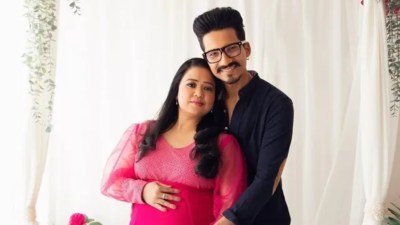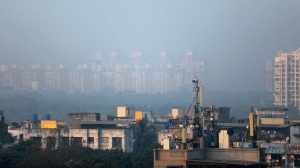Indian broadcasters get uplinking facility
NEW DELHI, June 24: The Government today permitted uplinking for private Indian broadcasters, paving the way for expanded live reports in th...

NEW DELHI, June 24: The Government today permitted uplinking for private Indian broadcasters, paving the way for expanded live reports in their news bulletins, introduction of breaking news, and telecast of live events. Minister for Information and Broadcasting Sushma Swaraj announced the decision at a meeting with the broadcasters, among them representatives of Asianet, Sun TV, Eenadu TV and TVi, in the Capital.
She also promised to persuade the Videsh Sanchar Nigam Limited, which will be the sole uplinking authority, to charge internationally competitive rates. Broadcasters with a 20 per cent cap on foreign equity will be eligible and will be required to abide by the programme and advertising code valid for Doordarshan.
Uplinking permission will be given for a year in the first instance and applicants will be vetted for security clearance by the Home Ministry before final approval. Applications are to be made to the Ministry of Information and broadcasting and the licence will be granted by the WirelessPlanning Adviser.
The channels will be permitted to uplink to any communication satellite but preference will be given to those uplinking on Insat series. Uplinking to foreign satellites will be granted through the International Telecommunications Union.
This permission for uplinking could not be construed to imply international agreement by the Indian administration of the satellite network. The applicants should be in possession of a transponder on ITU coordinated satellite. The transmission would be in C-band not above 4800 mHz and for television signal only, she said.
The question of permitting uplinking for TV satellite channel operators from Indian soil has been under consideration for some time. In fact there was a provision for making such uplinking mandatory in the proposed Broadcast law which had been introduced in Parliament in 1997. This bill lapsed with the dissolution of the 11th Lok Sabha. After examining requests received from various TV satellite channel operators and considering thematter carefully, the government has taken the decision to grant this facility from Indian soil, she said.
In most countries, it is the downlinking activity which is first brought under regulations, whereas uplinking is more freely permitted. Indian satellite channel operators had to go abroad for uplinking, as it was not permitted from India. On the other hand, there are practically no restrictions regarding downlinking of signals from both Indian and foreign satellites, which can be freely received through dish antennae and cable networks, the release said.
- 01
- 02
- 03
- 04
- 05































